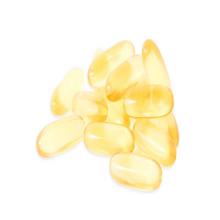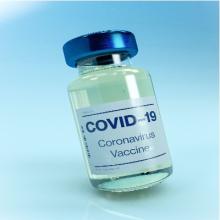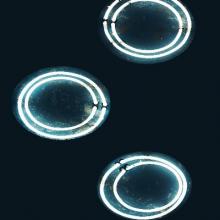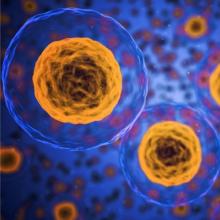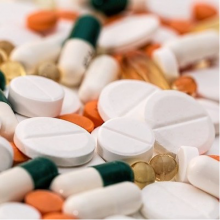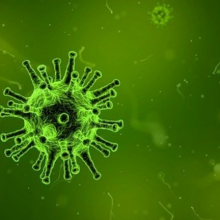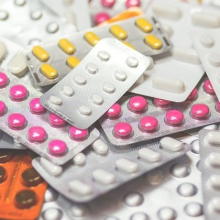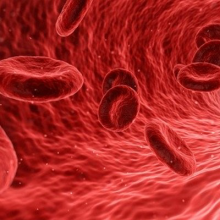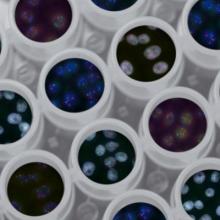Newsroom
Cancer researchers have many ways to study the biology of cancer and to find and test possible treatments. Examples include growing cancer cells grown in dishes, implanting cancer in animals and even creating three dimensional balls of human tissue known as organoids or tumoroids. However, the… more
Have you ever taken “Omega-3 fish oil” supplements? Fatty acids are essential for humans. For example, one type of omega-3 fatty acid called DHA (short for docosahexaenoic acid) helps make up body structures, including the brain and the eye.
A team of researchers at the… more
Cancer patients may wonder if their disease or ongoing treatments may change how well the COVID-19 vaccine works and their body’s response to the vaccine.
A study done in Israel helps to answer that question. The research included 102 patients with a mixture of cancer types and… more
Our immune system is able to recognize and attack cancer. In fact, many cancers are recognized and eliminated before they become large enough to pose a problem. One thing that slows down the attack is the tangled and dense network of cable-like fibers surrounding cancer cells in tumors. It is… more
Cancer is often thought of as a modern disease. Increased numbers of cases has been linked to exposure to chemicals, pollution and the rise in the use of tobacco products. A study from Britain shows that cancer likely affected many more people than previously thought.
The researchers examined the… more
The spread of cancer, metastasis, is the cause of 9 out of 10 cancer deaths. Unfortunately, there are currently no drugs that are effective in preventing metastasis. For many years, it was believed that cancer spread from the initial tumor only when the cancer cells had developed many new mutations… more
Since the discovery of the very first cancer-causing viruses and then the cancer-causing genes (oncogenes) they carried, research on the genes of cancer has focused on our chromosomes. Humans have 23 pairs of chromosomes that contain a total of about 20,000 genes. That is certainly a lot to study… more
Mesothelioma is a cancer caused by exposure to asbestos, a mineral. Currently, less than 1 in 10 patients with mesothelioma survive five years after diagnosis. New research using artificial intelligence to analyze genetic information from patients has shown that the development of the disease… more
Getting older is the single biggest risk factor for cancer. But WHY is that the case?
It turns out that the genetic changes that ultimately lead to cancer can form MANY years before the cancer is detected. Researchers looking at an older (63 yr old) and a younger (34 yr old) patient with… more
Dealing with cancer can be tough on patients and their loved ones. Surviving cancer also has its challenges, some of them lasting a lifetime.
The more we know about how cancer affects survivors, the better we are able to help them lead their best possible lives.
Research being done at the… more
Our bodies are made up of trillions of cells. Because cancer is characterized by uncontrollable cell reproduction, it can get very crowded in a tumor! Researchers in Europe have been investigating how tumor cells continue to thrive despite their crowded environment – it turns out… more
It is commonly known that exercise has many benefits for the body. It reduces your risk of heart disease, keeps you in shape, reduces stress, improves your mood, and more. People with cancer who exercise regularly tend to have better outcomes than patients who are inactive. One explanation is that… more
Low-dose aspirin or baby aspirin is commonly used to lower risk of cardiovascular events (those affecting to heart and surrounding blood vessels) events. Through observational and clinical studies, aspirin has also been shown to reduce the risk of a cancer diagnosis and reduce death from… more
Vaccines are designed to stimulate the immune system to recognize a foreign object, like a virus, or to fight defective cells, like cancer cells. As long as people have been using vaccines to prevent or fight disease, they have been looking for ways to make the vaccines work better.
ngredients… more
Through previous clinical and laboratory studies, researchers have determined that lipids (fats) play a role in cancer. Cholesterol, a common type of lipid, is the target of cholesterol-lowering drugs - the statins. Statins reduce the amount of LDL-cholesterol, a type linked to heart disease, by… more
Doctors have known for decades that melanoma skin cancer is more likely to spread (metastasize) if the cells pass through lymph nodes before entering the bloodstream. (Lymph nodes are part of a large network of tubes that move fluid, lymph, around the body.) The reason for this,… more
Imagine if you could get tested for cancer with simply a breath. Researchers at Flinders University in Australia are working to make this a reality. Although this concept is not new, this study represents a significant development within the field. The Australian researchers are… more
Cancer survival is improving for almost all cancers. One major reason is the customization of treatments for patients.
At the Moores Cancer at UC San Diego, a multidisciplinary molecular tumor board was created to guide physicians on the best way to use each patient’s tumor makeup to design… more
Many men have questions about prostate cancer and prostate cancer screening. Now there is a way to get answers without embarrassment or fear of judgement.
The National Association of Chronic Disease Directors (NACDD), The Centers for Disease Control and Prevention (CDC), and Kognito have developed… more
Many breast cancer survivors have a higher risk of developing diseases that affect the heart (heart attack and strokes) after receiving treatment for their cancer. This is because some chemotherapy agents damage the muscles of the heart, inhibit blood vessel formation, and can cause blood clots.… more


